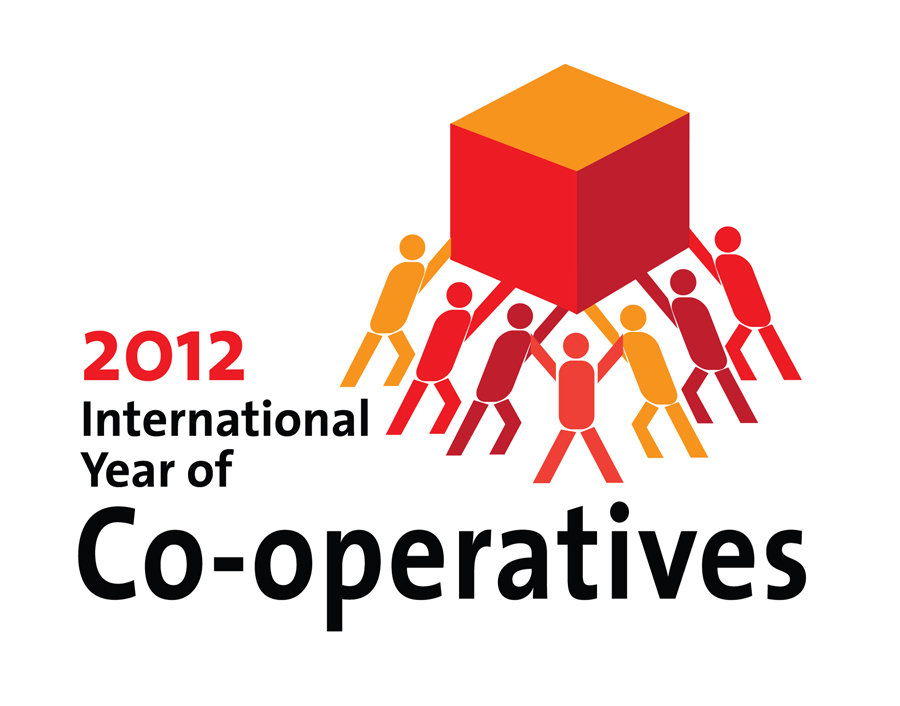 In the wake of a global recession that has devastated communities and livelihoods, people are hungry for alternatives to corporate greed and stock market speculation. As we look at challenges such as climate change, unemployment and growing disparities of wealth and ownership, people are looking for opportunities to grow sustainable, resilient regional economies. In this context, co-operatives are both a viable model of enterprise as well as tangible expressions of economic democracy, self-help, and community enterprise — a way of doing business that puts people before profit.
In the wake of a global recession that has devastated communities and livelihoods, people are hungry for alternatives to corporate greed and stock market speculation. As we look at challenges such as climate change, unemployment and growing disparities of wealth and ownership, people are looking for opportunities to grow sustainable, resilient regional economies. In this context, co-operatives are both a viable model of enterprise as well as tangible expressions of economic democracy, self-help, and community enterprise — a way of doing business that puts people before profit.
Co-ops are also more common than one might think. The International Co-operative Alliance estimates that a billion people worldwide are members of co-ops. Here in the U.S., an estimated 1 in 4 Americans are members of about 29,000 co-ops operating across the economy.
The fact that the United Nations (UN) has declared 2012 the International Year of Co-operatives is an unprecedented opportunity to tell these stories and present the co-operative alternative. In establishing the Year, the UN recognized that co-ops “in their various forms, promote the fullest possible participation in the economic and social development of all people, including women, youth, older persons, persons with disabilities and indigenous peoples, are becoming a major factor of economic and social development and contribute to the eradication of poverty”. UN Secretary-General Ban Ki-moon puts it more simply: “Co-operatives are a reminder to the international community that it is possible to pursue both economic viability and social responsibility.”
Thanks in part to the UN declaration, there is a growing recognition that co-ops have much to offer to the challenges and opportunities that we face today. For example, co-operative enterprises
- represent genuine economic democracy, community ownership and control
- emphasize member needs before maximization of profit
- develop local skills, assets and resources
- pool limited resources to create businesses of scale
- have low failure rates and tend to be long-lived
- are difficult to move or buy out, rooting infrastructure in community
- separate community wealth from speculative stock markets, and
- spread wealth and ownership, rather than concentrating it.
As we celebrate the International Year of Co-ops, an exciting discussion has begun on how we might use this opportunity to grow our co-ops, to apply the co-operative business model to new opportunities, and to make the benefits of co-operation available to more people. Our region is home to a vibrant community of co-operative enterprises, including food co-ops and farmer co-ops, credit unions and worker co-ops, energy co-ops and artisan co-ops. What would our economy look like if we took the principle of “co-operation among co-ops” more seriously, reaching across co-op sectors to collaborate, innovate and do business with each other?
Every day, the co-operative movement enables people around the world to help themselves and strengthen their communities. Let’s take the opportunity presented by 2012 to celebrate this history, tell our stories, and present a vision that challenges the status quo, offers hope and inspiration, and inspires people to envision a better world and then build that world, togethe
For more information and ideas on how you can celebrate, visit www.nfca.coop/go.
Erbin Crowell is Executive Director of the Neighboring Food Co-op Association, a network of over 25 food co-ops in Vermont, Massachusetts, New Hampshire and Connecticut, locally owned by more than 90,000 member-owners who care about food, farming and the future. He serves on the board of the National Cooperative Business Association and teaches a course on the co-operative movement at the University of Connecticut. Erbin may be contacted at erbin@nfca.coop.

